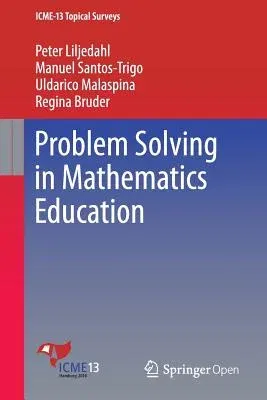Peter Liljedahl
(Author)Problem Solving in Mathematics Education (2016)Paperback - 2016, 6 July 2016

Qty
1
Turbo
Ships in 2 - 3 days
In Stock
Free Delivery
Cash on Delivery
15 Days
Free Returns
Secure Checkout
Part of Series
Icme-13 Topical Surveys
Print Length
39 pages
Language
English
Publisher
Springer
Date Published
6 Jul 2016
ISBN-10
3319407295
ISBN-13
9783319407296
Description
Product Details
Book Edition:
2016
Book Format:
Paperback
Country of Origin:
NL
Date Published:
6 July 2016
Dimensions:
23.39 x
15.6 x
0.25 cm
ISBN-10:
3319407295
ISBN-13:
9783319407296
Language:
English
Location:
Cham
Pages:
39
Publisher:
Series:
Weight:
81.65 gm

